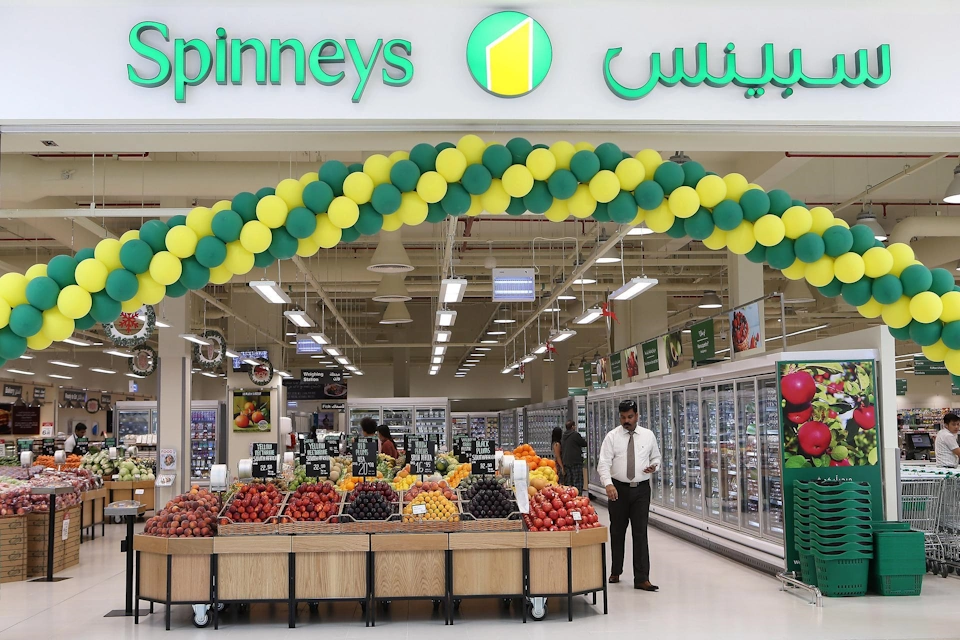By Riad Beladi
Dubai’s supermarket sector stands as one of the most advanced and diverse in the world, reflecting the city’s global outlook, multicultural population, and relentless drive for innovation. As the emirate continues to position itself as a leading retail destination, its grocery industry mirrors Dubai’s transformation into a modern, tech-driven economy that values efficiency, quality, and sustainability.
A Market of Diversity and Choice
Supermarkets in Dubai cater to an exceptionally diverse demographic. With residents from more than 200 nationalities, the demand for international products has shaped a market that offers everything from British breakfast cereals to South Asian spices and Japanese snacks.
The major players — Carrefour UAE, Lulu Hypermarket, Spinneys, Waitrose, and Union Coop — represent different market tiers. Carrefour, operated by Majid Al Futtaim, maintains the widest reach with stores across every district, while Lulu has built its reputation on competitive pricing and accessibility. Meanwhile, Spinneys and Waitrose attract the city’s expatriate professionals with a premium range of imported goods and strong emphasis on quality.
“Dubai’s strength is its inclusivity — we cater for every taste, culture, and preference,” said a retail executive during a recent industry forum. “This diversity keeps competition healthy and innovation constant.”
Digital Transformation Accelerates
Online grocery shopping has become a mainstream habit among Dubai’s residents. Platforms such as Carrefour Online, Kibsons, and Instashop have redefined consumer expectations, offering same-day or even one-hour deliveries. The rapid shift to digital channels was amplified by the pandemic but has now become embedded in everyday life.
Supermarkets are investing heavily in automation, logistics, and customer data systems to enhance delivery accuracy and convenience. Carrefour’s “Scan & Go” and Lulu’s “Smart Trolley” technologies are prime examples of how retail is merging with digital ecosystems.
Industry analysts believe this hybrid model — physical stores complemented by seamless online services — will dominate Dubai’s retail landscape for years to come.
A Step Towards Sustainability
Sustainability is fast becoming a defining feature of Dubai’s supermarkets. Retailers are introducing eco-friendly initiatives such as biodegradable packaging, plastic reduction campaigns, and stronger partnerships with local farms.
Union Coop, one of the city’s leading cooperatives, has expanded its range of UAE-sourced fruits and vegetables, reducing reliance on imports and supporting domestic agriculture. The trend aligns with the UAE’s broader national strategy for food security and sustainable production.
“Consumers today care not only about price and quality, but also about where their food comes from,” said a Union Coop representative. “This awareness is changing how we operate — from sourcing to packaging.”
Technology and Experience at the Forefront
Beyond convenience, supermarkets in Dubai are evolving into lifestyle destinations. Modern stores feature in-store cafés, fresh bakery counters, and health-focused product sections. The aim is not just to sell groceries but to create experiences that resonate with modern consumers.
Retail technology also plays a central role. Artificial intelligence is being used to manage inventory, predict demand, and personalise promotions. For example, loyalty apps now recommend products based on customer behaviour, ensuring both relevance and engagement.
Regional Influence and Global Vision
Dubai’s supermarket industry has become a regional benchmark. Retail giants based in the emirate are using the city as a launchpad to expand across the GCC, Africa, and Asia. Carrefour’s regional network and Lulu’s footprint across the Middle East underscore Dubai’s growing influence as a hub for retail excellence.
As Dubai continues its journey toward becoming the world’s most innovative city, its supermarkets are setting global standards for modern retail. The mix of technology, sustainability, and customer-centric service is not just reshaping shopping — it’s defining the future of how consumers connect with brands.


